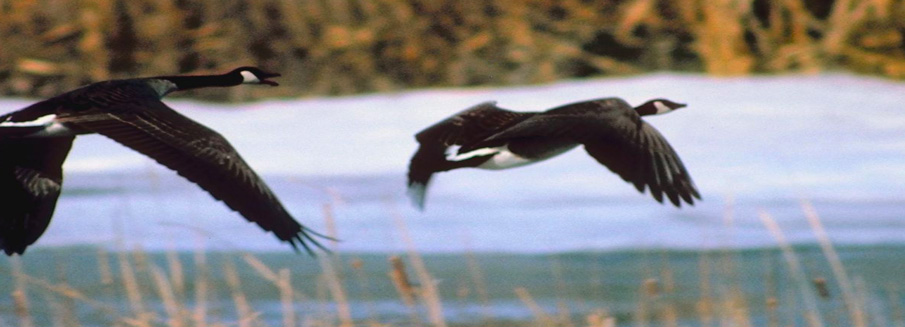
Waterfowl hunters do their part to stop the spread of aquatic invasive species
About the time the Green Bay Packers start fulfilling our football dreams, Wisconsin’s hunters prepare to take to the waters for the 2019 waterfowl hunting season on opening weekend, September 28-29. It will also begin the fourth year of Waterfowl Hunter Aquatic Invasive Species (AIS) Outreach, when teams of DNR staff, statewide AIS Partners and volunteers will be stationed at access points on opening days across the state to talk to hunters about AIS and what they can do to stop the spread. Staff at Glacierland RC& D will be out at the Marshes and other hunting hotspots around Sheboygan and Manitowoc Counties to assist hunters with preventative actions and answer any invasive species questions.
Modeled after the successful Clean Boats Clean Waters (CBCW) program that reaches boaters all summer long, boat inspectors/educators conduct a hunting version of the CBCW survey and talk with them about specific aspects of duck hunting that risk AIS movement. Mud, for example, can hide seeds, the bulbils of starry stonewort, and the eggs or larvae of tiny invaders, such as spiny water fleas. Of particular concern to the hunters is the Faucet snail. These snails carry intestinal flukes that can kill thousands of ducks if they eat them.
If you have experience as a Clean Boats, Clean Waters boat inspector and want to volunteer during the duck hunting season, please contact Samantha Lammers: Invasive Species Coordinator with Glacierland RC&D at 920-946-5921 or at samantha.lammers@glacierlandrcd.org.
Just a few minutes of preventative action can protect our hunting tradition for generations to come. Before launching into and leaving a waterbody, hunters must:
- Inspect waders, boats, trailers, motors and hunting equipment, including boots, blinds and dogs.
- Remove all plants, animals and mud.
- Drain all water from decoys, boats, motors, live wells and other hunting equipment.
- Never move plants or live fish away from a water body.
A special consideration for waterfowl hunters is to remove all seed heads and roots when using vegetation for your duck blinds. It is important to note that it is illegal to use phragmites in counties where the plant is listed as prohibited by NR40, in general these counties include the western half of Wisconsin.
Glacierland RC&D is a nonprofit, grass-roots organization that is committed to wise use and conservation of our natural resources and human resources. We promote sustainability on all levels- environmental, social, and economic- by bringing together agencies, organizations, and people to work on projects addressing issues of sustainability in Wisconsin. For more information about Glacierland, visit our website at: www.glacierlandrcd.org
For more information about aquatic invasive species, including where they are prohibited and restricted, in Wisconsin, visit this WDNR webpage.

